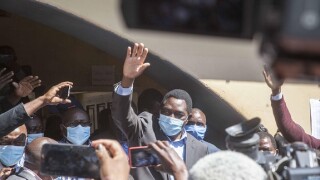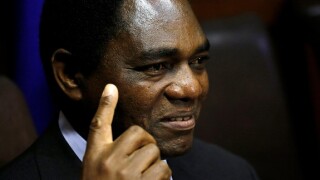Africa Bonds
-
-
Bankers promise pick-up in EM activity ahead of rates rise
-
-
-
South African lender returns with ring-fenced holding company capital deal
-
Volatility could increase concessions but CEEMEA, LatAm bankers prep more deals
-
EM sovereign's dollar deal could reach $4bn
-
Nigeria took a bold step on Tuesday, bringing three tranches of dollar paper to a turbulent market
-
Market participants are preparing for an imminent trade from Nigeria, after the government confirmed it was eyeing a September bond
-
Restructuring of emerging market debt is back on the agenda this week, as defaulted Zambia’s election saw ‘market friendly’ Hakainde Hichilema secure the country’s presidency. The nature of its forthcoming Eurobond restructuring, which some say could act as a benchmark for other emerging market sovereigns, is expected to become clear within weeks
-
Investors are looking forward to a bond from South Africa, after an almost two year hiatus, following a global investor call on Friday
-
Hichilema victory surprises bond investors with new government expected to be more market friendly











